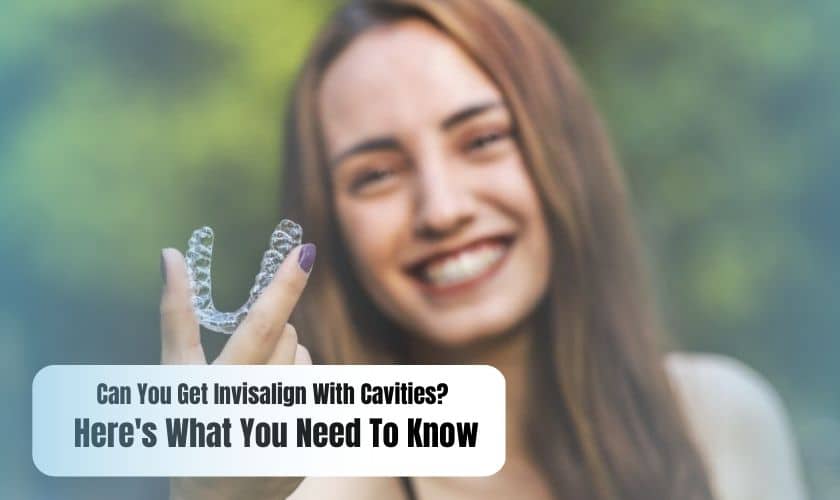Are you looking for an alternative to metal braces but worried about having cavities? Invisalign may be a great solution. In this article, we’ll discuss whether or not you can get Invisalign with cavities, what your other options are, and answer some frequently asked questions on the topic.
What is Invisalign?
Invisalign is a set of clear aligners made of medical-grade plastic that gradually move your teeth into proper alignment. The aligners fit snugly over your teeth without anyone being able to tell you’re wearing them. It’s more comfortable than traditional braces as Invisalign aligners don’t require you to use metal or wires in your mouth. Invisalign is also removable, so you can eat, brush and floss without the aligners getting in the way.
Can You Get Invisalign With Cavities?
Invisalign is a great solution for correcting misalignment while also treating cavities at the same time. It is possible to get Invisalign with cavities. However, it’s important to note that Invisalign cannot fix all cavities or misalignment issues. It is best to consult with an orthodontist before deciding if Invisalign is right for you and your specific oral health needs.
Your Other Options
If Invisalign doesn’t work for fixing your cavities and misalignment, there are other options available. Traditional metal braces are a viable option if Invisalign won’t work. The metal wires used in traditional braces can be tightened to move teeth into proper alignment while also helping to repair cavities. In some cases, dentists may recommend veneers or bonding treatments to help restore the shape of your teeth and fill any cavities you might have.
Conclusion
In short, Invisalign is a great solution for correcting misalignment while also treating cavities at the same time. However, it is important to consult an orthodontist before deciding if Invisalign is right for you and your oral health needs. If Invisalign doesn’t work, other options, such as traditional metal braces or veneer treatments, can fix cavities and misalignment issues.
FAQs
A: In some cases, Invisalign can help repair cavities while correcting misalignment issues. It’s best to consult with an orthodontist before deciding if Invisalign is right for you and your specific oral health needs.
A: If Invisalign doesn’t work, other options are available, such as traditional metal braces or veneers/bonding treatments that can fix cavities and misalignment issues.
A: Invisalign is designed to fit snugly over your teeth without causing pain or discomfort. Patients often prefer Invisalign because it’s comfortable and easy to use compared to traditional metal braces.

